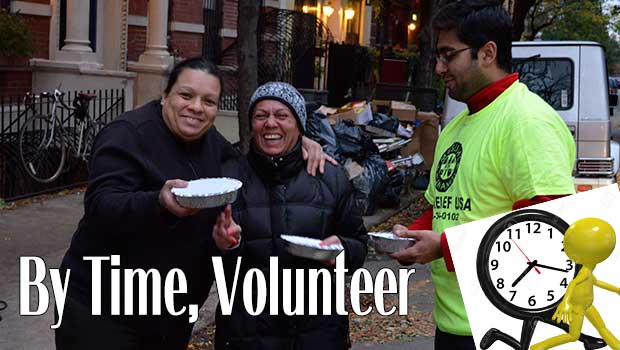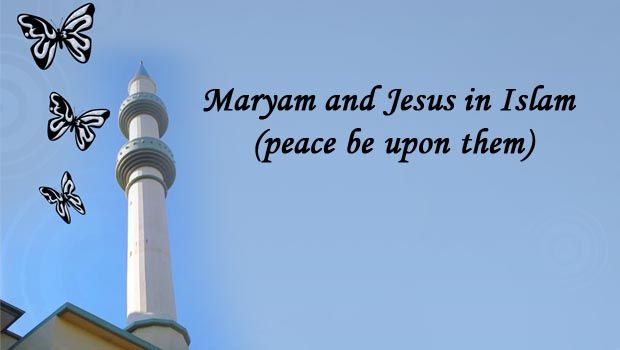It’s August, but Elizabeth has already started sewing dolls at her church for the gift boxes they distribute to needy children during the winter season.This year she’s donated one sewing machine and lent another. They work in shifts, sometimes more than ten women of varying ages at a time, preparing presents to bring smiles to children’s faces. These women give up their time to bring a touch of happiness to young souls confronted with adversity. Although the children often live in far reaches of the earth, Elizabeth and her co-volunteers can touch them with their compassion, and experience joy in knowing their efforts make a positive difference in their lives.
The first time I noticed she gave of herself in this way was last winter. One particularly frigid evening, I crossed the yard and rang her doorbell. I remember standing in the entryway; her cozy home was filled with warmth. As we chatted in the dim light, I could see gift boxes all lined up on her sofa. She had been lovingly filling them with gloves and knit hats and toothbrushes for children in need of basic necessities.Her gifts would deliver more than supplies—she hoped that they would convey to them the knowledge that they are cared for, that their lives matter.
When we learn about average people who generously offer up so much of themselves and so much of their time in order to do good, how can we have any excuse not to do the same?
When her good friend Marion fell ill with cancer, it was Elizabeth who drove her to appointments, made phone calls, and looked out for her best interests. She told me that she does these things because she is able to — as if not doing it would be a waste of the ability she’s been given. Further motivation comes from the pleasure she feels by doing good for others. She quoted Longfellow, who said, “The highest love of all finds its fulfillment not in what it keeps, but what it gives.”
I praised her for her loving, giving nature, but she insisted that whatever she has done, is pale in comparison to her friend Marion’s efforts. Marion regularly worked for the homeless and underprivileged, making sandwiches for shelters, collecting clothing and other supplies.She baked and decorated special cupcakes every month for the residents of a shelter, whose co-president thanked her,saying,“the colorful and festive creations spoke to our guests of respect, dignity and care… They spread happiness.” She provided her extraordinary cupcakes and the resulting happiness, consistently,for ten years. This is just a fraction of the time she spent dedicated to helping others. She made it her duty to assist blind church members to attend services, by personally driving them each week, and often out to lunch each Sunday as well.
She was even charitable towards animals and helped animal shelters, knowing they were under-funded, providing them supplies, and by clipping coupons she knew could help them save money. Elizabeth told me that Marion would often stop if she saw items being discarded, and collected and distributed useful things to organizations she knew could use them.
Volunteers in My Neighborhood
Amazingly, in my neighborhood, fervent volunteers surround me on three sides.Next door to my right, Jeanne is always on the move. When she’s not taking care of her elderly mother, or her three grown children, she’s using her talent for photography to further the work of her church. She sees her efforts as a volunteer and in any realm of serving others, as a way to serve God. Using the gifts she believes God has provided her to help others, helps her to thrive as well. She surrounds herself with people who also wish to be servants, living their lives for a higher purpose.
I sometimes cross paths with Laura, who lives across the street. She dedicated many months working in shelters with displaced families who lost their homes in the destruction of Hurricane Sandy. On one occasion I found her returning home from cleaning up a church whose funding couldn’t keep the building properly maintained, damaging their reputation in the community. Laura and others stepped in to see to it that the church wouldn’t have to worry about insulting chatter.
There is a man in my neighborhood that struggles to get by. I see him daily, painstakingly collecting bottles in the stifling heat of summer and in the freezing cold depths of winter. He is currently months away from losing his home because he is unable to pay his taxes, at which point he will be resigned to living in his car. In the midst of the foreclosure on his home, he met a homeless man and took him in.
These are just a few people I know, within walking distance of my home. They value giving of themselves. They are rewarded with pleasure and satisfactionby doing good to others, and all recognize that they have been given abilities that are useful and should be used for worthy causes; to make the world —one person, home, or community at a time — a better place. They are people with lives, friends, families, jobs, etc., who choose to truly value their health and free time,avoiding what prophet Muhammad cautioned usabout when he said: “There are two blessings about which most people are deluded: good health and free time” (Al-Bukhari).
Time is Fleeting
Allah, theAll- Knowing, has reminded us of the passing of time throughout the Quran.He has sworn by the decline of time:“By [the passing of]time, surelymankind is in loss,” (Quran 103:1-2). When He first sent Adam and Eve to earth, He informed them their stay would be “for a time” (7:24),emphasizing that life on earth is not permanent. He has informed us that on the Day of Judgment, our lives on earth will seem like nothing more than “a day or part of a day”(23:113).
With these reminders, and the fact that not a single one of us knows exactly how much time we have left in our fleeting lives, we ought to be using our time as wisely as possible. That being said, take a moment to think about how you are using your time. You’ve been given 24 hours every day. How are you spending them?Do you ever find yourself saying, “I have no time”?Do you ever feel that there is not enough time to volunteer or to provide assistance to others? Do you believe that you couldn’t possibly devote time to yourcommunity center ormasjid?Now imagine that you are invited to engage inyour favorite activity, or maybe toattenda wedding. Are you able to make time for it?
It’s true that time is very limited, but we often shuffle our schedules and priorities in order to make room for the things we want to do. When we truly wantto undertake noble endeavors,when we desire to help other people and our communities thrive, we will also begin to make room for those things, even if we have the busiest of schedules. Prophet Muhammad instructed us to take advantage of our health while we are well. In the stories of my neighbors, all of their actions were related to the fact that they felt they were ableto act. The manin danger of losing his house still had a roof over his head; therefore, he offered to share it with someone who did not. Jeanne has a knack for photography and so she utilizes her gift to improve her community. Elizabeth realizes that she has been blessed with comforts unavailable to many around the world, and so uses the resources she has, to provide for the less fortunate.
In my community during Ramadan, I am always amazed and in awe of the people who regularly serve iftar to hundreds of fasting Muslims. They work non-stop serving the food and even dessert before they finally sit down to eat themselves. Some of the core women I know who do this are older women. They are taking advantage of their health while they have it. They realize that they have this capability and with it they are feeding hundreds of fasting people.
What Do They Get in Return?
In addition to the types of rewards like the ones my neighbors described, such as pleasure, satisfaction, and fulfilling a sense of duty, these Muslims also maintain hope for rewards in the hereafter.Prophet Muhammad, may Allah’s peace and blessings be upon him, said, “Whoever gives iftar to one who is fasting will have a reward like theirs, without detracting from the reward of the fasting person in the slightest” (Tirmidhi).So, for all the Muslims who feed other fasting people — whether two, or dozens, or hundreds —for each day they provide iftar,they are promised a reward that is multiplied, beyond their own individual fasting.And Prophet Muhammad described fasting as a shield, a protection from Hell.He also said that fasting is a means of attaining joy when the one who fast smeets his or her Lord. Clearly they’ve made an excellent exchange. All that for a few extra hours of effort!
When we learn about average people who generously offer up so much of themselves and so much of their time in order to do good, how can we have any excuse not to do the same when we know that Allah has told us: “Whoever volunteers good – then indeed, Allah is appreciative and Knowing” (Quran 2:158). And how can we not take action when Prophet Muhammad has informed us, “Allah will not cease to help His servant as long as that servant is helping his brother” (Muslim).We all claim to want Paradise, but we must put in the effort.
What Is Holding So Many of Us Back?
Choosing to spend our own time to provide some benefit to others is a personal responsibility. It is also an extremely virtuous way to use our God-given faculties and abilities. It is a way to show gratitude to our Maker, using the gifts He’s given us to seek His pleasure by caring for His creation. Yet, for whatever good we do, we will be the beneficiaries of the rewards promised to us by the Almighty Lord of the Worlds. If we choose not to do much, we are the ones missing out. It’s like Allah told us in the Quran:“Whoever acts righteously,benefits his own soul; and whoever works evil, does so against himself. Your Lord is not unjust to His servants” (Quran 41:46).
There is plenty of reason to do good if we are seeking to benefit our own souls. Beyond that, if we take a look at our communities, and at the state of the ummah, it is easy to conclude that a lot of work must be done. Why do we tend to expect someone else to do it? Most of our organizations are struggling, stretched thin, often with little funding and insufficient personnel. There is no need to wait around for them to come to us asking for our help. Each one of us should, instead, be offering our services to organizations striving to serve our growing communities.
Time to Act!
Instead of thinking about what is not being done by our organizations, think about how you can help. What are your talents or abilities? Where do you see the greatest needs? Are the bathrooms not clean enough for the worshippers in your masjid? Why not offer to clean them every weekend? Do you feel that your Islamic center should be doing more to reach out to the surrounding non-Muslim community to build bridges and promote understanding and neighborly love? Why not be the one to initiate and establish an outreach program? Not sure what needs to be done? Contact them and let them know your strengths and when you can devote some time. If you have a family, it may be even better to collectively decide to devote time to your local Muslim organization. This way you’ll get more quality time with your family, while encouraging one another to do good and to put faith into action.
Avoid being deceived into feeling that time is ample and that your health is permanent. Resolve to use them to do more. Start now. You’ll not only find the pleasure of service, but if Allah wills, you will find Allah’s rewards greater and more lasting than whatever you give. May Allah SWT guide all of us to give of ourselves to our family, friends, and communities with pleasure and sincerity for His sake.May He increase our faith through our works and strengthen our communities such that they begin to reflect the true beauty of Islam. Ameen.
Danielle LoDuca is a third generation American. Although raised as a Catholic, she considered herself agnostic and was disdainful of religion until she chose Islam in 2002. Danielle holds a BFA from Pratt Institute, and has pursued post-graduate studies in Education as well as studies of Arabic and Islam at The Foundation for Knowledge and Development. She writes about Islam and how it relates to American culture and values, in order to familiarize Americans with the truth about what she calls, “the most misunderstood way of life” — Islam. She welcomes questions and invites everyone to read her blog, http://youramericanmuslimneighbor.com/, and to interact with her on Facebook at https://www.facebook.com/danielle.loduca. She can be reached by email at DanielleLoDuca@gmail.com





